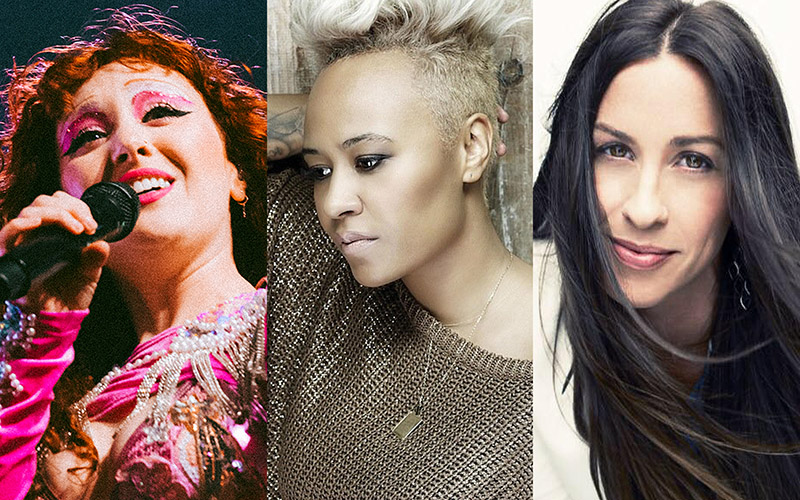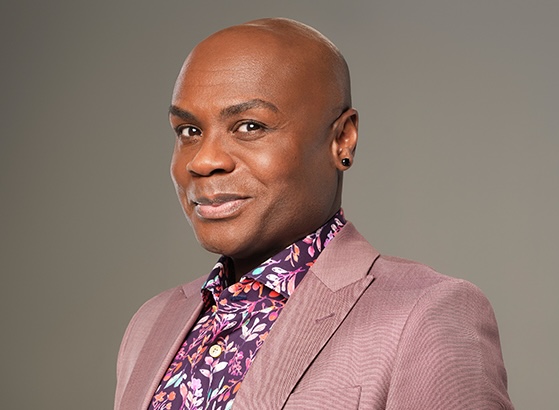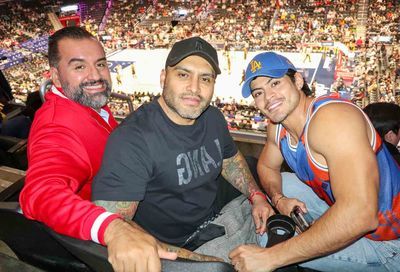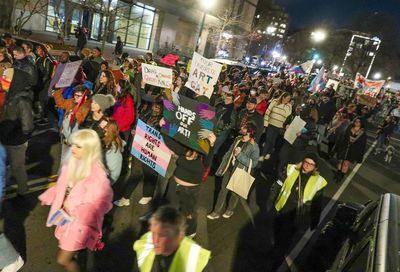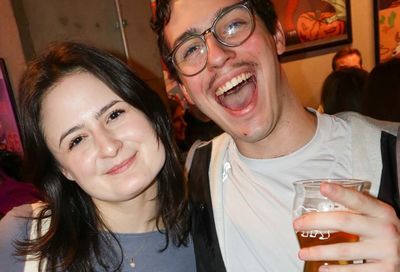Professor/Pundit
Melissa Harris-Perry takes her political insights from campus to cable
MW: Just recently, this question about Roland Martin and his comments. The question about not just whether they were homophobic or not, but whether it also was a question about enforced gender roles, enforced sex roles and this question of homophobia, and how those played together.
HARRIS-PERRY: Yeah. Somebody, and it probably cannot be me, but somebody has got to write the ”Reading Roland Martin” piece. This is the academic piece that says, ”Who is this African-American man with an important public space in which he gets to comment on American politics who is, on the one hand, operating within a very narrow constraint of black masculinity – this highly heteronormative, highly, almost, aggressive version of black masculinity – and wears an ascot?” I mean, excuse me. That is fucking hilarious and fascinating stuff. How is he simultaneously like, ”I am so manly I cannot buy underwear from H&M anymore, but I will wear my ascot.” [Laughs.] It’s like, What?
It’s fascinating, the fluidity of that self-presentation of black manhood and what that means and how that fits or doesn’t fit with conceptions of black manhood associated, for example, with the black church. I mean, black church traditional teaching, which tends to be pretty viciously homophobic, or at least very vocally homophobic, while simultaneously doing the sort of performative aspects of it that do not fit within the most narrow definitions of masculine self-presentation that often go along with those ideas.
On the one hand, you can’t do that kind of theorizing about metaphors when people’s lives are at stake, which, once you have a public forum, as Roland does, and in the context of the violence against, particularly transgender and gay youth, you can’t start tweeting about beating people. You just give up the right to do that. But, on the other hand, rather than just have a knee-jerk reaction to it one way or another, it’s such an interesting public moment to learn and to try and unpack some of what we mean when we say ”manly” or ”masculine” or ”heterosexual.”
MW: Then there’s the other side of this. The LGBT leadership, which is overwhelmingly white – where do you see their process missing out on opportunities to engage more fully?
HARRIS-PERRY: A lot of places. It feels to me as though questions of racism, of continuing racial bias within feminism, continuing racial and class bias within LGBT movements, these are core questions about where we’re going next, and it’s in part because basic identity politics is going to be insufficient for actual coalition building. That kind of identity politics is useful when you’re just trying to figure out who could potentially be on your side – who has shared interests, but as we move toward nuance, we’re going to require addressing racial inequality within feminism. Look, when I say ”address it,” it’s not like it hasn’t been a central agenda item since the 1960s, both within feminism and within the LGBT movement – but we just have to keep doing it.
And, I think for me, sometimes it’s that it’s more painful when it comes from people who are supposed to be your allies. The most stingingly painful experiences I have are of sexism within racial equality movements. When I feel that someone is supposed to be my brother, and I experience patriarchy and sexism from them, it’s just so much worse than if it’s some old, white guy Republican somewhere. Because, he’s not meant to be on my side.
MW: In D.C., with the anti-trans violence that this city’s had over the past year, there could certainly be questions raised about whether that’s getting the attention that it would get if there was a string of white, gay guys leaving Dupont getting beat up and killed.
HARRIS-PERRY: Yeah. Whose bodies matter? I don’t have an easy solution to that one.
I think it’s some of the hardest work we do because we’re battling with so few resources and with such high stakes. What’s on the line is literally our lives, and our ability to be safe, and our ability to thrive in our communities, and just coming off Black AIDS Day, the failure of the civil rights organizations to address HIV in black communities for two decades really. It took them that long to get on board because they didn’t want to address issues of prison status, they didn’t want to address issues of gay identity, and they didn’t want to address issues of intravenous drug use, and so they just decided that HIV wasn’t happening.
So, that’s happening on one side, where the civil rights community was initially not doing what it needed to do, and then, on the other side, you had a very active, well-financed, largely white male anti-HIV community that wasn’t addressing how it was decimating poor communities and communities of color. So, literally, these were bodies and lives that were lost in between.
MW: More broadly, how should engagement on these issues with LGBT equality be happening? What’s missing from the discussion right now?
HARRIS-PERRY: Probably what’s always missing – and I wouldn’t say that this is missing any more from this discussion than from most political discussions – and that’s just nuance.
I don’t think it’s any less nuanced than others, but one example would be the Cynthia Nixon comments about choice and the notions of sexual orientation and sexual preference as choice and the strict pushback that, ”No, it has to be biological, it has to be genetic, it has to be inborn. We don’t have any room for talking about desire and choice and optional activity, because if we do, then we’re suddenly in a land where we’re going to lose our civil rights.” But, I just think we have to be so careful about that because your rights as a citizen should not rest on if you have an oppressed status or a marginalized status, it shouldn’t matter whether you were born into that status or whether you chose that status, you just shouldn’t be discriminated against because of it. Full stop.
One example of this that fits in my life is that my mother, when she is not with her family, is a white woman. So, she goes through the world accessing white privilege in the way that white people do. But, when she’s with her family, particularly with me or with my daughter or with my father – and particularly, in the ’70s and ’80s in Virginia – she was shedding her white privilege. She was having to experience many of the aspects of racial inequality that we experienced. Not exactly the same, but … she was a white woman who had a black baby. And that was a different kind of status. Should the law of fair housing not apply to her because she chose to have a black baby and wasn’t born black? That’s crazy. Of course not. Her choice of, kind of, residual blackness should not make her any less a full citizen.
So I think that for me is the part, those nuanced conversations, they’re very much missing for me in ways that I think keep us from having the most robust political discourse I think we could.
MW: Some people blame cable news shows for part of the loss of that nuance. So, with your show, are you helping that or contributing to it?
HARRIS-PERRY: Undoubtedly, a little bit of both. Look, I love Politics Nation with Al Sharpton and The Rachel Maddow Show. And, I can’t think of two shows on the same network that are more different in tone and content. I see them as my Old Testament and New Testament. I really need them both. I need to smite my enemies, and I need to understand them. And then I need to smite them, and then understand them. I probably will do a little bit of both on my show.
Melissa Harris-Perry premieres this Saturday, Feb. 18, on MSNBC. The show runs from 10 a.m. to noon weekly on Saturdays and Sundays.
Support Metro Weekly’s Journalism
These are challenging times for news organizations. And yet it’s crucial we stay active and provide vital resources and information to both our local readers and the world. So won’t you please take a moment and consider supporting Metro Weekly with a membership? For as little as $5 a month, you can help ensure Metro Weekly magazine and MetroWeekly.com remain free, viable resources as we provide the best, most diverse, culturally-resonant LGBTQ coverage in both the D.C. region and around the world. Memberships come with exclusive perks and discounts, your own personal digital delivery of each week’s magazine (and an archive), access to our Member's Lounge when it launches this fall, and exclusive members-only items like Metro Weekly Membership Mugs and Tote Bags! Check out all our membership levels here and please join us today!





